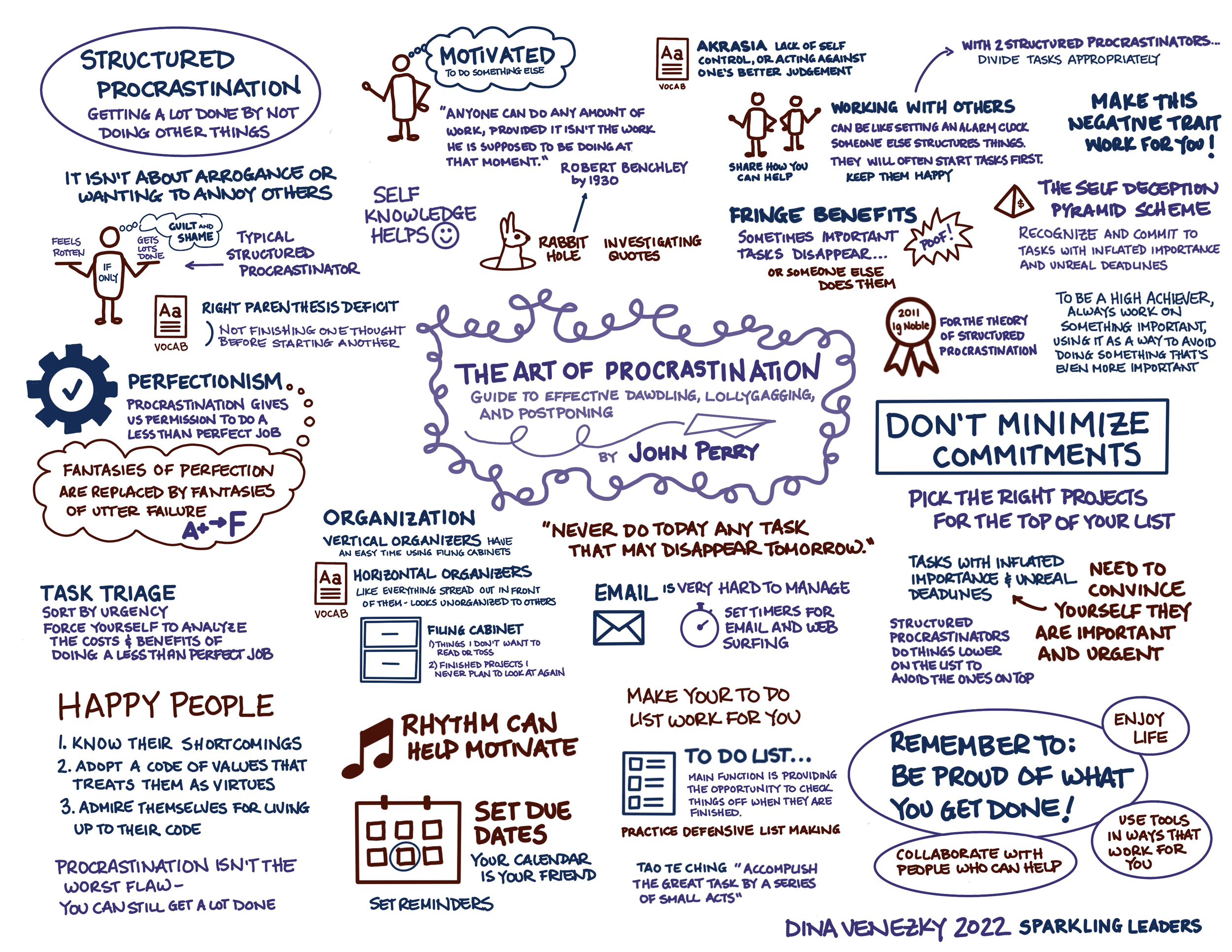Structured Procrastination Resources
Resources from our session discussing the book Structured Procrastination: A Guide to Effective Dawdling, Lollygaging, and Postponing by John Perry
Key Takeaways
Structured procrastinators get a lot done by not doing other things.
They are not avoiding things out of arrogance or to annoy others.
The key to getting things done is to convince yourself there is something more important to do. Some people find this mindset helps them accept and take advantage of their work styles.
Procrastination can give perfectionists permission to do a less than perfect job. To ease up on perfectionism ask…
How likely is it that I am going to do a perfect job?
Can I give myself permission to do a less than perfect job in advance?
Tips
Manage your To Do lists by including all the things you need to do, not just work goals. Does it help you to add things you are not going to do like binge watch a show?
Audit your week to determine when you best work, sleep, connect, exercise, etc and plan accordingly.
Divide work, breaks, and other activities into small chunks (pomodoros). Timers can be helpful.
Don’t reduce your commitments - chose the right things for the top of your list to help you accomplish other items
When collaborating with others, know your strengths and weaknesses, have others do tasks you know you have trouble starting, be humble and grateful.
Be proud of what you get done. Find tools that work for you. Collaborate with people who can help.
To reflect on:
Could owning the Structured Procrastinator mindset help you manage your workflow?
Can you give yourself permission in advance to do a less than perfect job on some tasks as a way of getting started on them earlier?
Are there tools that help you prioritize and accomplish tasks?
Additional Thoughts
Enjoy life!
Continue the conversation!
A few links from our conversation
Shut up and write (looks like their certificate expired) Commit to writing with others for an hour a week and find the accountability, focus, and structure you need to achieve your writing goals.
Google Keep “Google Keep allows users to make different kinds of notes, including: texts, lists, images and audio.”
Orkanizer, the online tool I started using in 2012 for tracking time blocks, and Time Timer, the physical clock I use.
Sparkling Leaders Creativity Booklet (if you don’t have it already)

